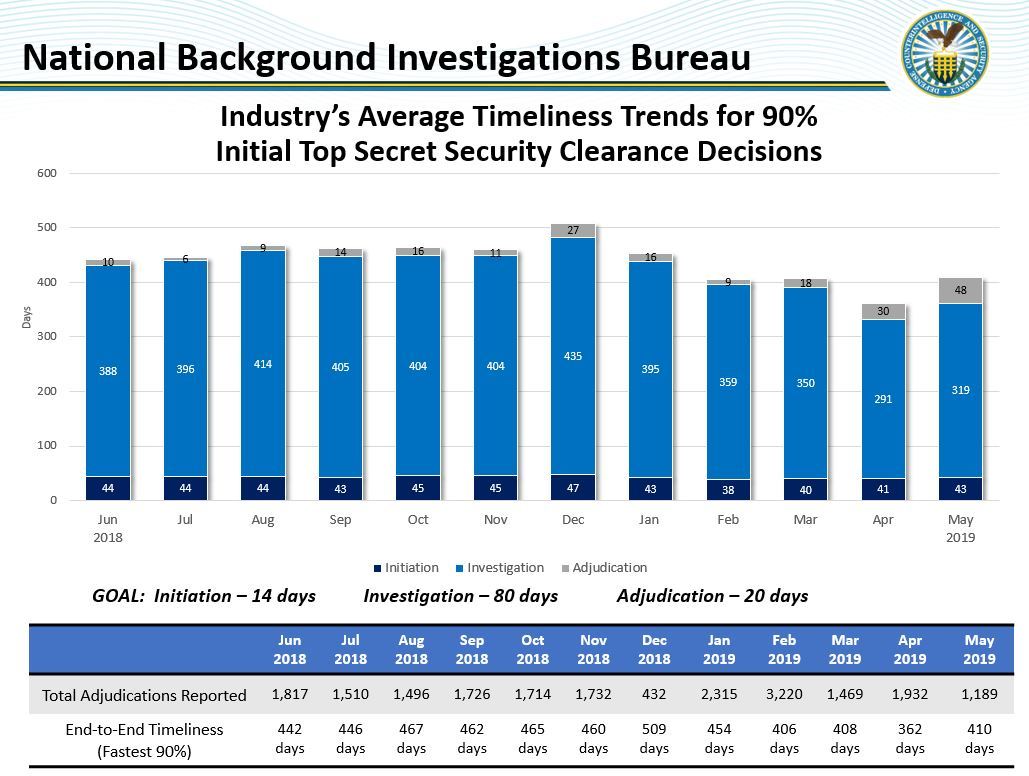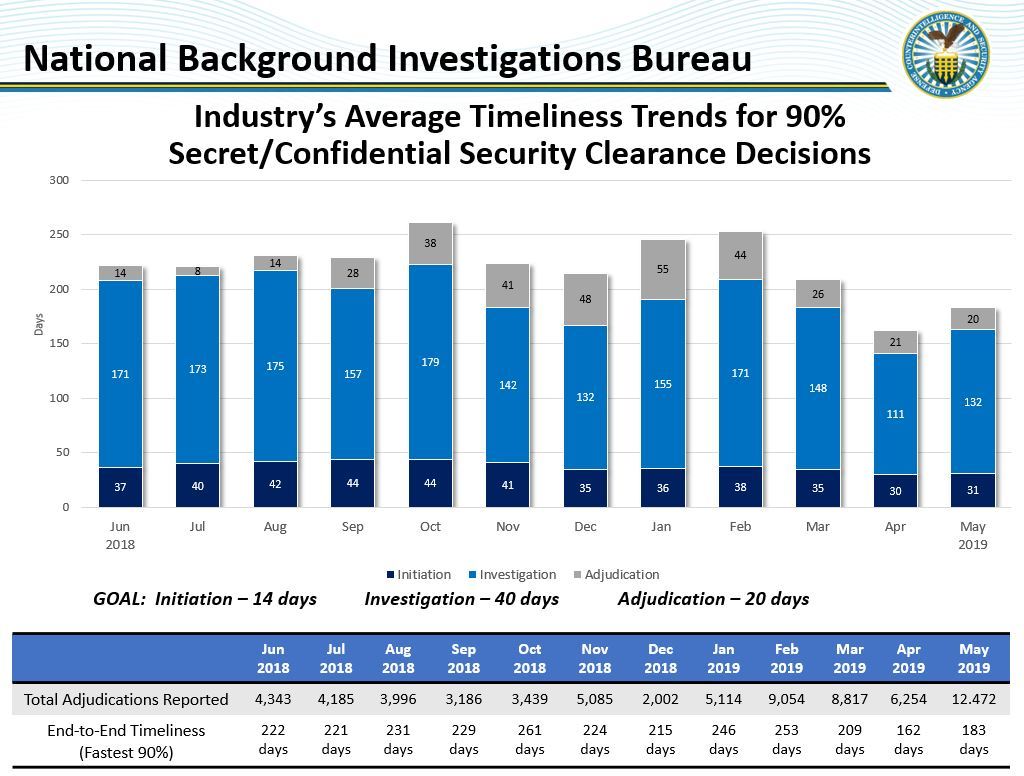

Progress with the security clearance inventory has put pressure on the Defense Department's Consolidated Adjudications Facility, which is realigning resources a...
Senate Intelligence Vice Chairman Mark Warner (D-Va.) looks at the 40% drop in the National Background Investigations Bureau’s security clearance inventory over the past year and sees some promising signs.
The NBIB is well on its way to reaching what it’s determined will be a manageable “steady state” inventory of 250,000 cases.
“There’s been real progress, but we’ve now seen the adjudication process … blown up to 200,000, so we have to bring those numbers down,” he said in an interview with Federal News Network. “If you bring more people into the front of the funnel, you have to make sure you get them through the whole process.”
Some cleared individuals, however, aren’t officially making it through the whole process.
The Defense Department’s Consolidated Adjudications Facility has divvied up its pending industry adjudications into three groups: readiness, risk and deferred.
The deferred group, which comprises some 41% of the CAF’s industry workload, includes periodic reinvestigations the National Background Investigations Bureau has deemed as “low risk” or having no risk, David Wright, a threat evaluation and coordination team chief with the DoD CAF, said Thursday at a meeting of the National Industrial Security Program Policy Advisory Committee (NISPPAC).
The CAF is putting aside these periodic reinvestigations for now, he said.
This practice is helping the CAF focus its attention on background investigations that are necessary to get people back to work — or clearances that are potentially considered “high risk.”
Wright said the CAF has been adjudicating industry “readiness” investigations within about 12 days this month — a far better average than what the CAF reported back in March.

Initial secret and top secret cases on average took 30 and 42 days, respectively, to adjudicate in the second quarter of fiscal 2019, according to a June update on Performance.gov. Periodic re-investigations took 100 days to adjudicate, data which is likely skewed to reflect recent Defense Department policy to forego those reviews in favor of continuous vetting.

Adjudications are supposed to be completed in an average of 20 days, according to methodology from the Performance Accountability Council.
This practice has sparked some concern within industry, said Quinton Wilkes, NISPPAC spokesman.
“We’ve heard a lot about how this is going to help clear up space so [DoD CAF] adjudicate the issue cases, but we still want to take a look at this,” he said. “If they’re low-to-no-risk cases, maybe [we can] take a look at e-adjudications or something that we can put in place so that the members in the field actually know that the case is being deferred. At the moment, there’s no way … that we know that the case has been deferred.”
Longer wait times at the DoD CAF is mostly a natural outcome of the NBIB’s progress within the last year, Warner said. NBIB has piloted more efficient investigative techniques and hired more people to handle the inventory, leaving more pressure on adjudication facilities to finish the cases.
No background investigation is complete unless it’s been adjudicated.
“You need to move more personnel into the adjudication component so you don’t have this backup,” Warner said. “I think there was some ability for us to predict this. On both the DoD and the intel side, people recognize there’s a problem, and they’re trying to move the resources and trying to bring this down.
The DoD CAF has, in fact, been focused on making its own business process improvements to keep pace with NBIB and address its existing backlog.
“We have several Lean Six Sigma programs going on to help us with our efficiencies,” Wright said. “As we move underneath the [Defense Counterintelligence and Security Agency], we are reorganizing to create specialized teams and task organizations to help us find greater efficiencies, improve our training opportunities and improve our consistency in our adjudications.”
Meanwhile, Warner has also been focused on the coming transfer of the security clearance program from the Office of Personnel Management and NBIB to the Defense Department.
“I meet with them on a regular basis to make sure that the transition is moving smoothly,” Warner said. “So far I give it pretty good marks.”
Warner is also the author of a series of provisions designed to advance several hyped modernization efforts to the security clearance process, which were part of the Intelligence Authorization Act for 2018, 2019 and 2020.
The Senate attached the intelligence authorization bill to the National Defense Authorization Act, which cleared the chamber earlier in June.
“The process reforms are moving along,” Warner said. “On the intel side, Deputy Director of National Intelligence Sue Gordon has really taken this on as a major issue. On the DoD side, Admiral [Joe] Kernan has taken this on as a major issue. I feel pretty optimistic that we’re headed in the right direction.”
Copyright © 2024 Federal News Network. All rights reserved. This website is not intended for users located within the European Economic Area.
Nicole Ogrysko is a reporter for Federal News Network focusing on the federal workforce and federal pay and benefits.
Follow @nogryskoWFED


